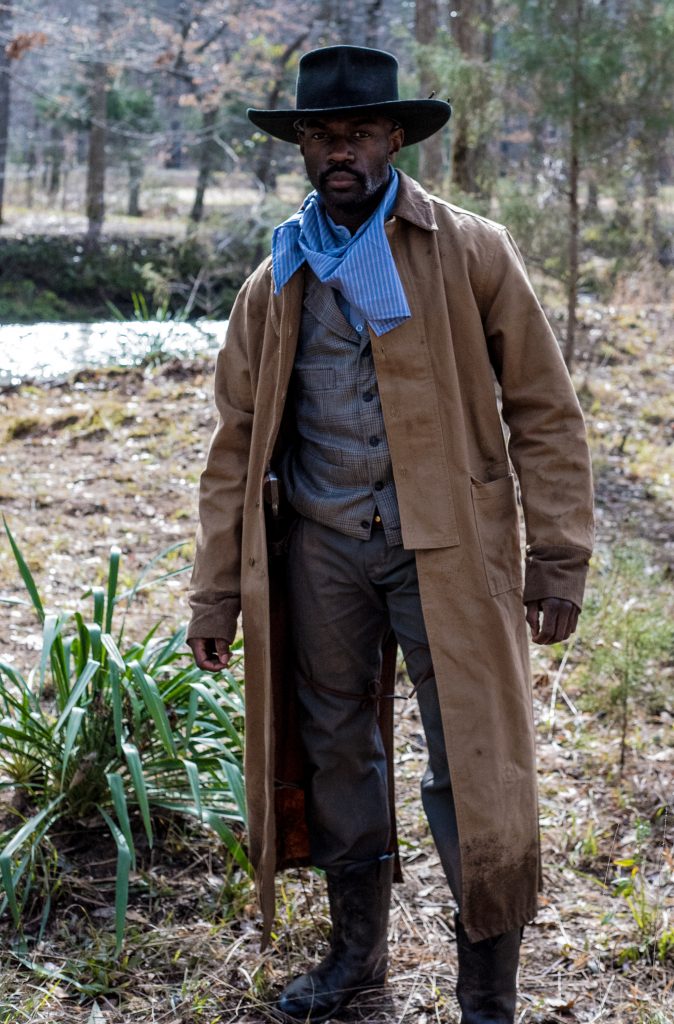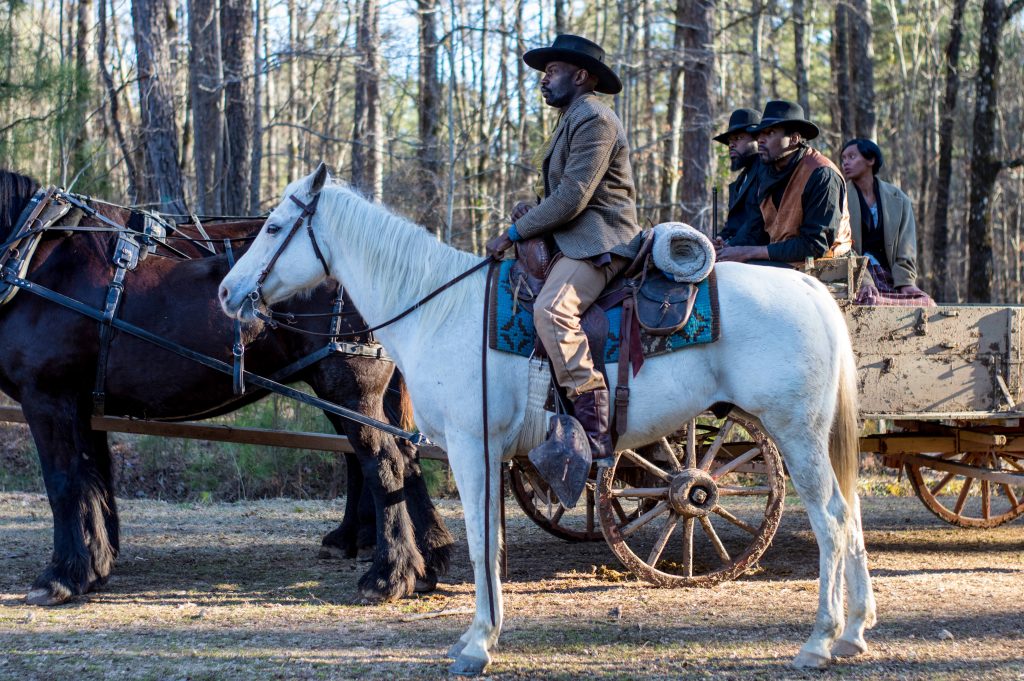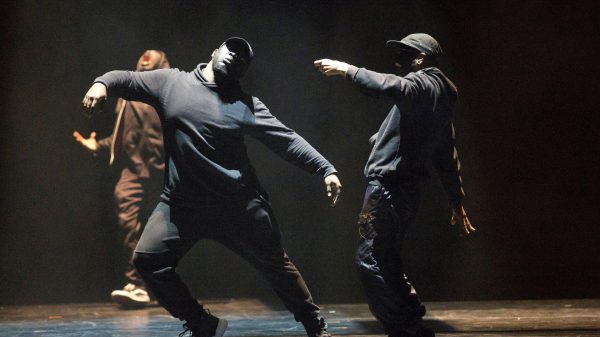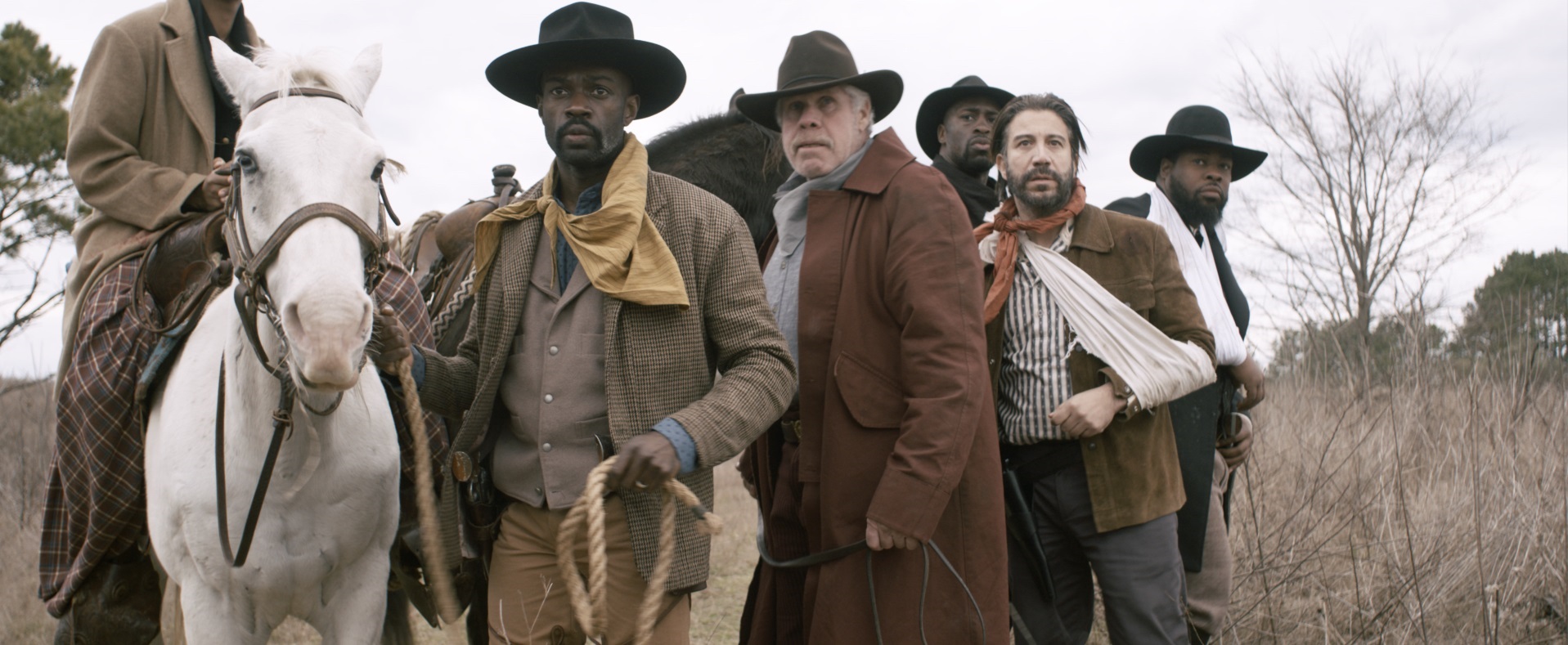Hell on the Border is based on the true life story of Bass Reeves, the first-ever Black U.S Marshal. Having escaped slavery Bass found refuge with the Indigenous people, where learnt hunting skills and gunman ship up until 1865 when the 13th Amendment abolished slavery. As a Black man with those skills and authority as U.S Marshal – Bass became gravely feared, outliving other marshals and bringing over 3,000 outlaws to justice. Emmanuella Ngimbi speaks to David Gyasi, the lead actor of this thrilling western movie, who tells the story of Bass Reeves – the original Lone Ranger.
What was it about Bass Reeves that attracted you to the role?
When this story came along, I was just amazed. The fact that it’s widely believed that the Lone Ranger was based on this man and his story, for whatever reason late 18th century America having a hero that looked like Bass Reeves wasn’t gonna run. So they put a mask on a white guy, called him the Lone Ranger and then told these tales, which were based on stories that Bass Reeves had actually experienced. I just felt like I would do anything to help this movie be made.
How does the preparation differ when you’re preparing to play a factual character?
I’m not sure it does differ because one of the first things that you have to do is acknowledge and accept that you’re not imitating. That was helpful for Bass Reeves because there was nothing to imitate, no videos or recordings. Regardless of that, it’s much more helpful and more interesting to pick one or a few aspects of the character that really leap out at you. What I found incredibly interesting was his loyalty to a system that was inherently racist and inherently put him on the back foot. How was he able to overcome that? What was it that made him fiercely loyal? And what was it that made him have so much dignity in such a time as that.
What about the physical preparation, there was horseback riding, the stunts and also filming in the rain. What was that like for you?
When I read about his adventures I couldn’t help but think of this guy as a superhero. In that day and age to be riding on his own, I mean to understand that he served over 3000 warrants. This was the wild wild west when America was working out the laws as they stepped through it. If someone steps on your shoe or steps in your way, you could literally draw a gun and suddenly you’ve killed a man or you’re killed. So the idea that a U.S Marshal would live out their full life was abnormal, the preparation for that meant eating right, training well. Also, the thing on low budget shoots is it’s going to be long hours, so physically I wanted to be able to be the first man in and the last man standing every day.

I also noticed that not only are you the lead actor in this movie, but you also have a producing credit. How did that come about and is producing a new interest of yours?
It’s something that kind of happened over the years, what I started to realize is as my profile was growing people would send me things asking my thoughts and sometimes it was great but they had no money, so how could I help them continue on that journey, that’s when I started looking into producing. With this story, in particular, that’s the way that we could work it, let me learn something from that side and let me help be part of the creative process so then everyone’s getting something from it.
Will you be more behind the scenes in the future? perhaps eventually directing as well?
That’s just naturally starting to happen, it’s a natural progression. My wife and I have a production company and it’s quite nice, we meet once a week or if I’m not in the country we’ll Skype. It’s is good for us, in terms of our ownership, but as a business, she comes up with some amazing ideas which we take to the next step.
I’m sure that you heard about the controversial statements that Samuel L Jackson made regarding Black British actors going over to work in America, What’re your views on that?
As we see from the Bass Reeves story, I think America as a country has a whole complex history and conversation that it needs to have within itself. There’s a whole thing that needs to happen there, It’s like almost pouring antiseptic into a deep wound. Now in terms of who should play this and who should play that, that’s something that I’ve had to deal with my whole career. So whether I’m doing an advert or whoever, someone’s got something to say about it. For me, I have been hugely inspired by lots of different people, especially people from the black race. The first time I saw Denzel Washington on film I was blown away. I’m quite a big international rugby fan and I support England, recently England lost to South Africa but when I saw a Black South African Captain lift that trophy, I got goosebumps and felt a kinship and a joy. The same way that when I watched Black Panther in a Czech cinema I stood up and applauded the end of the film, I saw things in that film that spoke me on a deeper level. I wasn’t asking myself who should be playing what, I was celebrating. If I was to say to myself right I can only play someone that grew up in Hayes, but they need to be of the second generation, but wait they need to be Ghanaian, but wait they need to be Ashanti Ghanaian who am I going to end up playing? I didn’t get into the business to play myself.

Going back to Bass Reeves, we saw that even though he had the courage and the speed to become a U.S Marshall, he still had to prove himself. Has there ever been a point where you faced limitations knowing you had what it took and how did you overcome that?
I think a big way of overcoming that is, acknowledging and realizing the shoulders we stand on. I remember earlier on in my career. I really wanted to get more responsibility in TV and film but it wasn’t coming, you sort of believe the no’s and the rejection, I’m very fortunate to have parents constantly told me, I’m the head and not the tail, I’d walk amongst kings and be a leader. That’s the voice you need in your head when doors are being shut and there’s an objection in front of you. I think that when you look at the Bass Reeves and the very dignified, graceful, courageous people that we have in the diaspora to lean on it’s quite useful and helpful.
What would you want those audiences to take away from the movie?
It’s essentially just learning about this incredible human, this incredible man and again just imagining what that would have been like, physically stand in his shoes and look at the world that he would have looked at and see if you would have made those decisions. Perhaps just appreciate the decisions that he made and the courage that he had. That’s what I would love people to take away from courage and his bravery.
Hell on the Border is now available on Digital Download and DVD

































































